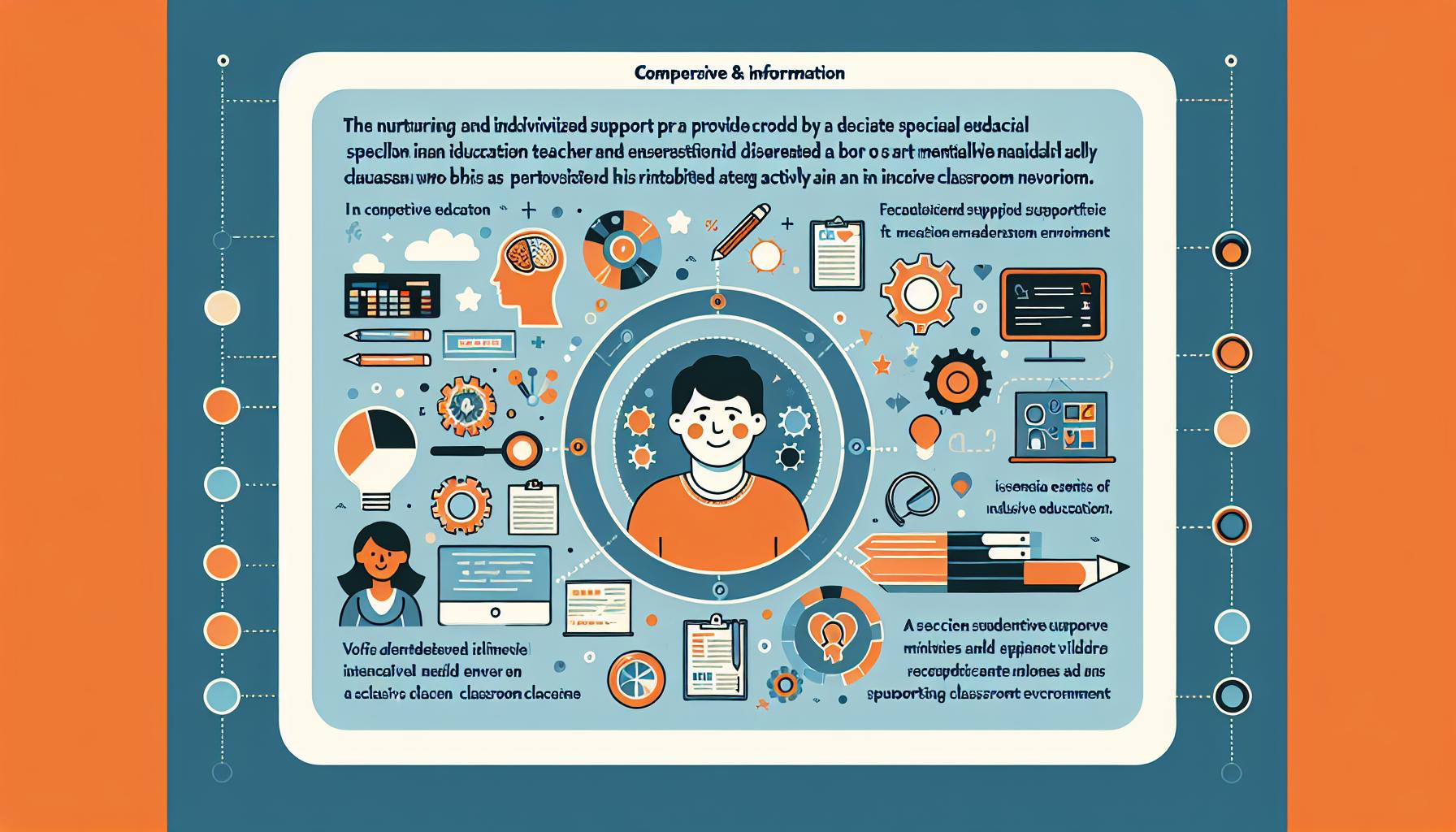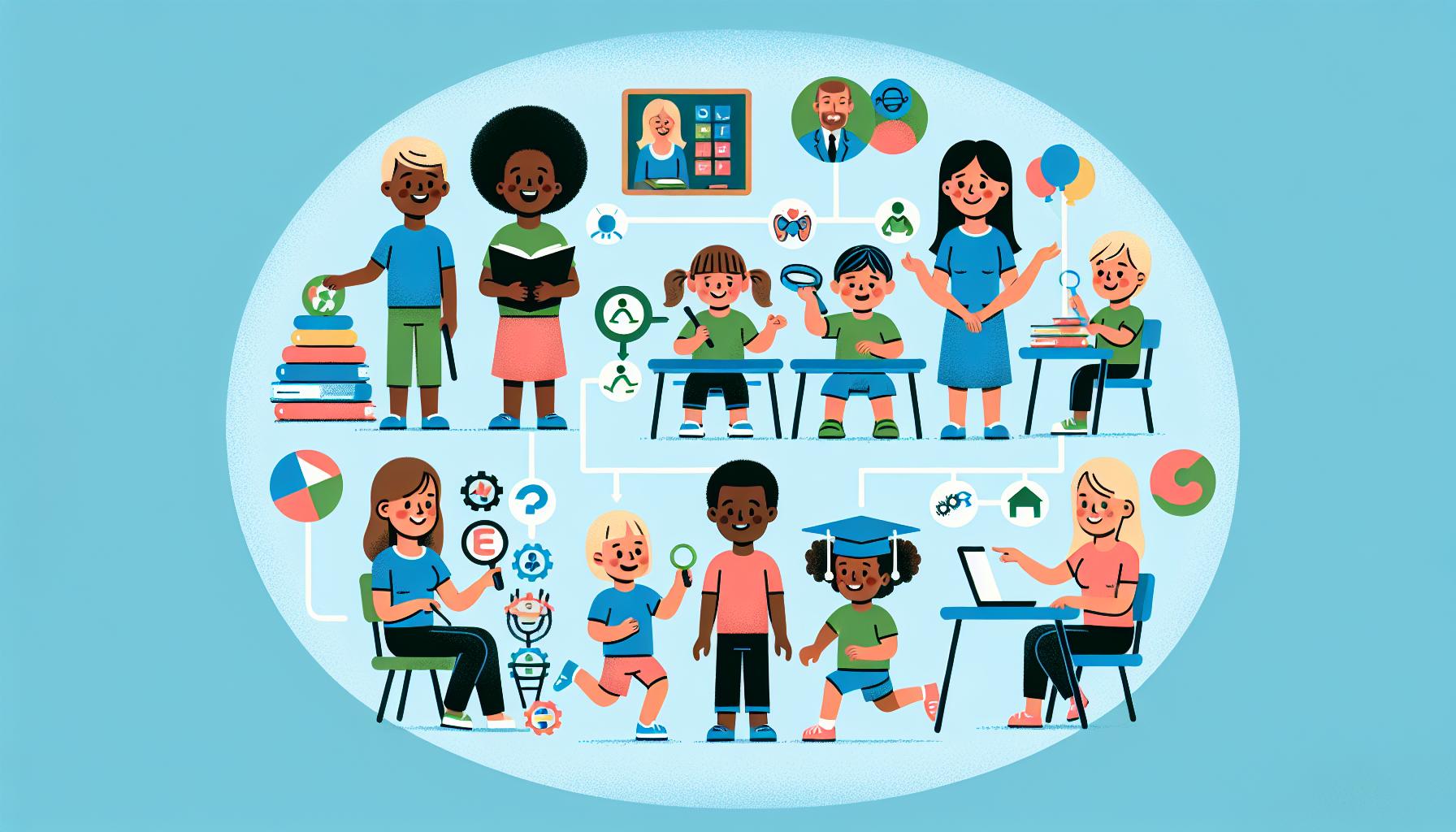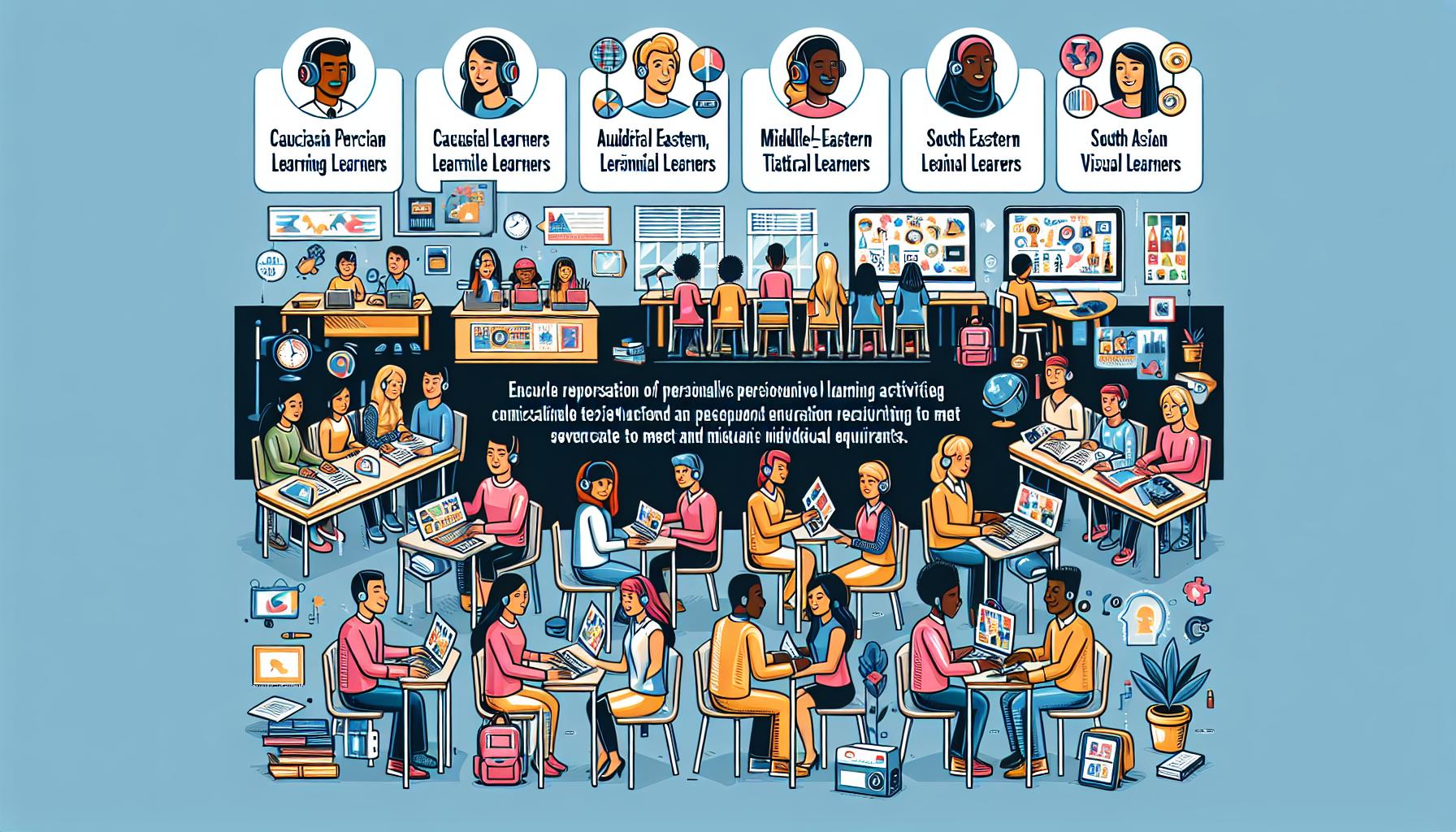Unlocking Potential: The Importance of Special Education in Shaping Brighter Futures
Ever wondered why special education is so crucial in our society? Well, it’s more than just another branch of education. It’s a lifeline for many students who need a bit more support to reach their full potential.
Special education isn’t about labeling or segregating students. It’s about understanding each child’s unique needs and tailoring the learning experience to help them thrive. It’s about inclusivity, equality, and giving every child the chance to shine.
So, if you’ve ever questioned the importance of special education, stick around. You’re about to discover how it’s changing lives and shaping futures in ways you might not have imagined.
Key Takeaways
- Special education plays a crucial role in promoting inclusivity and equality by catering to the distinct learning needs of each student, ensuring every child gets equal opportunities to learn and thrive.
- Tailoring education to fit a child’s unique learning needs not only boosts academic performance but also fosters confidence, self-esteem, and improved social skills, impacting multiple facets of a student’s life.
- Special education is also significant at the societal level as it fosters compassion and understanding within the community, encouraging people to appreciate and respect diversity.
- The individualized instruction, flexible curricula, and modified learning environments of special education make it possible to cater to a wide variety of learning styles and abilities, providing a more inclusive and effective educational approach for children with special needs.
- With the help of modern technology, special education continues to break down barriers and improve accessibility to education for all, making a significant impact on learning abilities and improving overall educational outcomes.
- Data shows that special education has a profound impact on students’ lives, lowering dropout rates for students with disabilities, increasing the number of students pursuing higher education, and helping students become more self-reliant and proactive.
Understanding the Importance of Special Education

When you cast your eyes upon the realm of education, you’ll find that special education sprouts as an essential element that can’t be overlooked. You might ask, why? Well, every child processes information differently, and it’s not uncommon for some kids to need a bit more support than the others. That’s exactly where the importance of special education comes into play.
Special education is not merely an alternative route for teaching children with unique learning needs. It’s actually a facilitator, constructively helping these children navigate their learning journey. Its importance permeates deep; it paves a pathway to moulding children who need that extra bit of care, into capable individuals who can thrive in society. Let’s delve into what makes special education so important.
One of the key roles of special education is promoting inclusivity and equality. By understanding and catering to each child’s distinct learning needs, special education ensures that nobody gets left behind in the race for knowledge. It levels the learning field, ensuring equal opportunities for everyone. So, be it dyslexia, autism, ADHD or any other learning challenges, special education stands as a beacon of hope, shining the light to guide these children in their academic journey.
Diverse teaching strategies employed in special education act as a catalyst, fostering self-confidence in children. It allows them to better handle their academic tasks, consequently leading to improved classroom performance. You see, it’s not only about academic success. Confidence and self-esteem can spill over into multiple facets of life, positively affecting their social skills and sense of self.
Though touted for its individual benefits, special education also plays a crucial role at the societal level. Think about it. By nurturing children with distinct learning needs, it indirectly fosters compassion and understanding within the community. It encourages society to appreciate diversity, emphasizing that everyone has unique strengths regardless of their challenges.
At the end of the day, special education is more than a branch of education; it’s a ray of hope for many kids and parents alike. It is a tool that offers a chance to students who might have otherwise struggled, to discover their capabilities and bloom to their fullest potential. All in all, the goal is to make learning a joyful and rewarding journey, and special education makes sure of that.
Tailoring Education to Each Child’s Unique Needs

Imagine walking into a shoe store and finding only one size available. It doesn’t work, does it? That’s akin to the standard style of teaching, where all students are expected to progress at the same rate. This inevitably leads to some students getting left behind. With more than 13.7 million students receiving special education services in the United States [Source: National Center for Education Statistics], it’s crucial to move away from this one-size-fits-all approach.
Special education focuses on individualizing instruction, curricula, and learning environments to suit a child’s unique abilities. This can involve modifying lessons, textbooks, and evaluation methods, providing additional resources or even tailoring the physical environment of the classroom.
There’s no doubt that the conventional teaching model offers numerous benefits, however, for children with learning difficulties, there often needs to be more flexibility. Special education allows for this flexibility.
Optimizing teaching methods to accommodate a child’s specific learning needs can completely transform their academic experience. For some kids this might mean using visual aids, for others it could involve hands-on activities. Special education professionals excel in devising unique strategies that engage different learning styles.
Special education doesn’t just cater to learning differences – it takes into account emotional, behavioral, and physical needs. Research shows that students who receive personalized instruction display more positive attitudes towards learning and exhibit improved social skills. These are undoubtedly crucial life skills that extend beyond the realm of academics.
Taking advantage of technology can further enhance the role of special education. Assistive tech tools such as iPad apps, reading software, and even robots can make education more accessible for students with special needs.
Insisting on a one-track educational system limits opportunities. Recognizing individual differences while nurturing unique talents and strengths maximizes potential. After all, isn’t that the ultimate goal of education? It’s clear that special education plays a vital part in helping every child flourish, in their way, at their pace. In essence, special education is the key to unlocking countless education doors.
Fostering Inclusivity and Equality
In a conventional classroom setup, you’ll find students possess divergent learning capabilities. Regular classrooms usually struggle to keep pace with students who deviate from the norm. However, within the realm of special education, inclusivity finds its home. Special education adopts a ‘Leave no child behind’ approach, focusing on providing equitable opportunities for all.
One integral feature of special education is the Individualized Education Program (IEP). It’s essentially a detailed roadmap, tailored to each student’s unique needs, abilities, and learning styles. Here’s how an IEP helps:
- Sets specific learning objectives and markers for success.
- Identifies and addresses potential obstacles.
- Outlines necessary adaptations or accommodations.
This kind of personalized approach is pivotal in promoting inclusive education, ensuring each child is given equal footing, regardless of their abilities.
Advancements in technology have played a significant role in enhancing the inclusivity aspect of special education. Imagine having a learning disability and struggling with reading printed text. It’d be tough, wouldn’t it? But, when equipped with assistive technology like text-to-speech tools, the issue could be mitigated, giving you the chance to keep pace with your peers.
In essence, assistive technology breaks down barriers, fostering a sense of equality among students of diverse abilities. Below is some data showing its effectiveness:
| Tech Tool | Improvement Factor |
|---|---|
| Text-to-speech | 18% better comprehension |
| Note-taking Apps | 20% increase in factual recall |
Indeed, fostering inclusivity and equality is not just about ensuring equal opportunities for quality education. It’s also about equipping students with the ability to realize their full potential, enhance their self-esteem, and promote overall well-being.
Changing Lives and Shaping Futures
You can’t ignore the profound impact that special education has on the lives of students. It transforms them by nurturing their potential and abilities, molding their futures to be as bright as possible. Special education is more than just an alternative form of learning; it’s a catalyst for change, sparking innovation and growth in students.
Take a moment to consider students with disabilities. They often face various challenges in traditional classrooms, causing them to feel separated or alienated. But with special education, they’re provided with an environment steeped in inclusivity and personalized learning. Not only does this foster a sense of belonging, but it also encourages self-confidence and boosts self-esteem.
The impact is palpable. According to a report by the National Center for Education Statistics, the dropout rate for students with disabilities has plummeted from 21% in 1990 to about 11% in 2020. Moreover, the percentage of students with disabilities pursuing higher education has increased significantly in the last decade:
| Year | Students pursuing higher education |
|---|---|
| 2010 | 20% |
| 2020 | 32% |
These figures underscore the remarkable influence of special education on students. It’s also worth mentioning that the application of assistive technologies in special education has played a significant role in these improvements, helping students surmount obstacles that would’ve otherwise impeded their academic and personal growth.
As you continue to delve into the importance of special education, it’s evident that its effects are far-reaching. Not only does it cater to an individual’s unique capacity and pace of learning, but it also cultivates their resilience. Special education empowers students to become self-reliant and proactive, equipping them with skills and tools to prosper in various facets of their life.
The Power of Special Education

Step into any classroom today, and you’ll likely find a diverse group of learners. Everyone has unique strengths, weaknesses, and ways they learn best. Traditional classroom settings can sometimes struggle to meet these varying needs, and that’s where special education comes into play.
Special education is powerful. It’s a game-changer for many students, fostering inclusivity and paving the way for personalized learning. With special education, you’re not just improving academic skills. You’re transforming lives, shaping brighter futures, and equipping students with the tools, they need to thrive in all aspects of life.
But how does it do all of these remarkable things? The magic lies in its student-centric approach. In special education settings, teachers focus on creating customized learning plans tailored to each student’s specific strengths and weaknesses. Every child gets a fair chance at growing, learning, and reaching their maximum potential.
Dropout rates for students with disabilities have shown a significant decrease, thanks to special education. Let’s take a look at some data.
| Year | Dropout Rate |
|---|---|
| 2012 | 5.5% |
| 2013 | 4.5% |
| 2014 | 3.7% |
| 2015 | 3.2% |
| 2016 | 2.8% |
As these numbers show, there’s been a gradual, but clear decrease in dropout rates over these five years. Not only have students been continuing with their schooling, but many are also pursuing higher education. This broad path towards a stable future can attribute its success to the influence special education has had on these students.
Also, let’s not forget about the role technology has played in this transformational journey. The integration of assistive technologies in special education classes has undoubtedly empowered students beyond classroom walls. It promotes resilience, self-reliance, and encourages overall growth.
Special education is indeed a catalyst for change in education. The influence of special education doesn’t just stop in the classroom – it permeates through every aspect of a student’s life. Like a pebble creating ripples across a pond, the impact of special education is ever expanding and ongoing.
Conclusion
So you see, the importance of special education can’t be overstated. It’s not just about meeting legal requirements or ticking boxes. It’s about transforming lives and shaping futures. Tailored learning plans and assistive technologies are more than just tools; they’re lifelines that empower students with disabilities to thrive. They’re the keys to resilience, self-reliance, and reduced dropout rates. But the impact doesn’t stop at the classroom door. Special education is a catalyst for change that resonates through every aspect of students’ lives, creating a ripple effect of positivity. So let’s celebrate special education for the game-changer it truly is.
What is the Power of Special Education?
The power of special education lies in its ability to cater to diverse learners with personalized learning strategies. It fosters inclusivity and provides students with essential tools to succeed.
How Does Special Education Transform Lives?
Special education transforms lives by focusing on students’ unique strengths and weaknesses. By customizing learning plans, it enhances students’ understanding and abilities, reducing dropout rates and shaping brighter futures.
What Role Does Technology Play in Special Education?
Assistive technologies play a crucial role in special education. They empower students with disabilities, promoting resilience and self-reliance, supporting personalized learning strategies.
Is Special Education Restricted to Academics?
No, the effects of special education extend beyond the classroom. It influences various aspects of students’ lives, creating a lasting impact through fostering resilience, self-reliance, and the ability to overcome challenges.
How does Special Education Foster Inclusivity?
Special education fosters inclusivity by setting up an environment where all learners, despite their physical or intellectual differences, receive equal opportunities to learn and succeed.
The post Unlocking Potential: The Importance of Special Education in Shaping Brighter Futures appeared first on Special Education Journey.
Unlocking Potential: The Importance of Special Education in Shaping Brighter Futures published first on https://special-education-journey.com/
Comments
Post a Comment